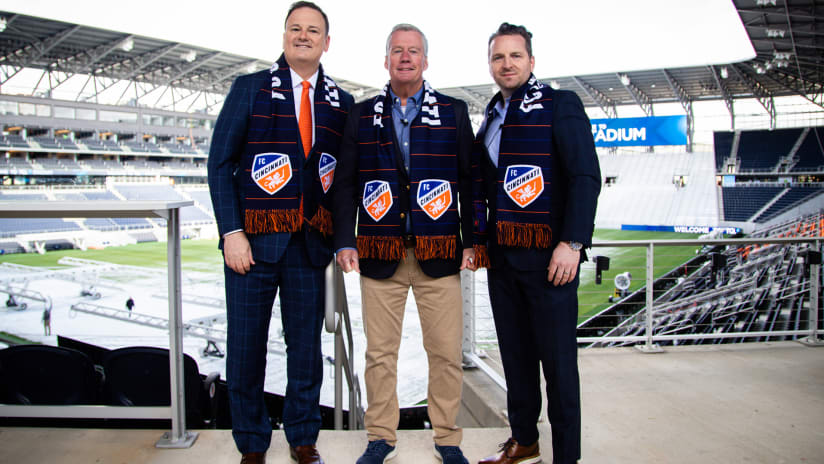FC Cincinnati’s new soccer-specific stadium is now known as TQL Stadium as the club enters a partnership with Cincinnati-grown Total Quality Logistics, it was announced Wednesday.
TQL Stadium is set to open May 1, with the first official match occurring May 16 against Inter Miami CF.
“We are thrilled to partner with TQL, a highly respected business that has grown from a start-up to industry leader, right here in the Queen City,” FC Cincinnati president Jeff Berding said in a release. “TQL is known for their high-energy culture and cutting-edge technology. There are a lot of synergies that make this alliance between TQL and FCC a perfect match and are reflected throughout the stadium — from the fin lighting to the TQL beer district.
“Like FCC, TQL is a leader in a growing sector and operates on national and international stages. The long-term stadium naming rights deal is important to the club’s growth and ability to attract top players to Cincinnati. We are excited to call TQL Stadium our home.”
The multi-year naming rights partnership includes exterior and interior signage, a seating zone, a branded bar area and opportunities for employee engagement. TQL Stadium’s lighting technology will feature the company’s logo moving across the stadium exterior.
“TQL Stadium is an investment in Cincinnati,” TQL president Kerry Byrne said in a release. “The city means a great deal to us. It is where we were founded and have been headquartered since 1997 – we are thrilled to have one of the most incredible stadiums in the country here, which will now have our name on it.
“This partnership allows us to reward our employees, increase our national brand awareness, drive recruitment of prospective hires and support our charitable efforts in the community and across the country. Cincinnati is our home, and we are proud for TQL Stadium to be the home of FC Cincinnati.”
During their first two seasons in MLS, FC Cincinnati played at Nippert Stadium on the University of Cincinnati's campus. Now, TQL Stadium will soon debut with 26,000 seats after a $250-million private investment as MLS’ soccer-specific stadium footprint continues to expand.













